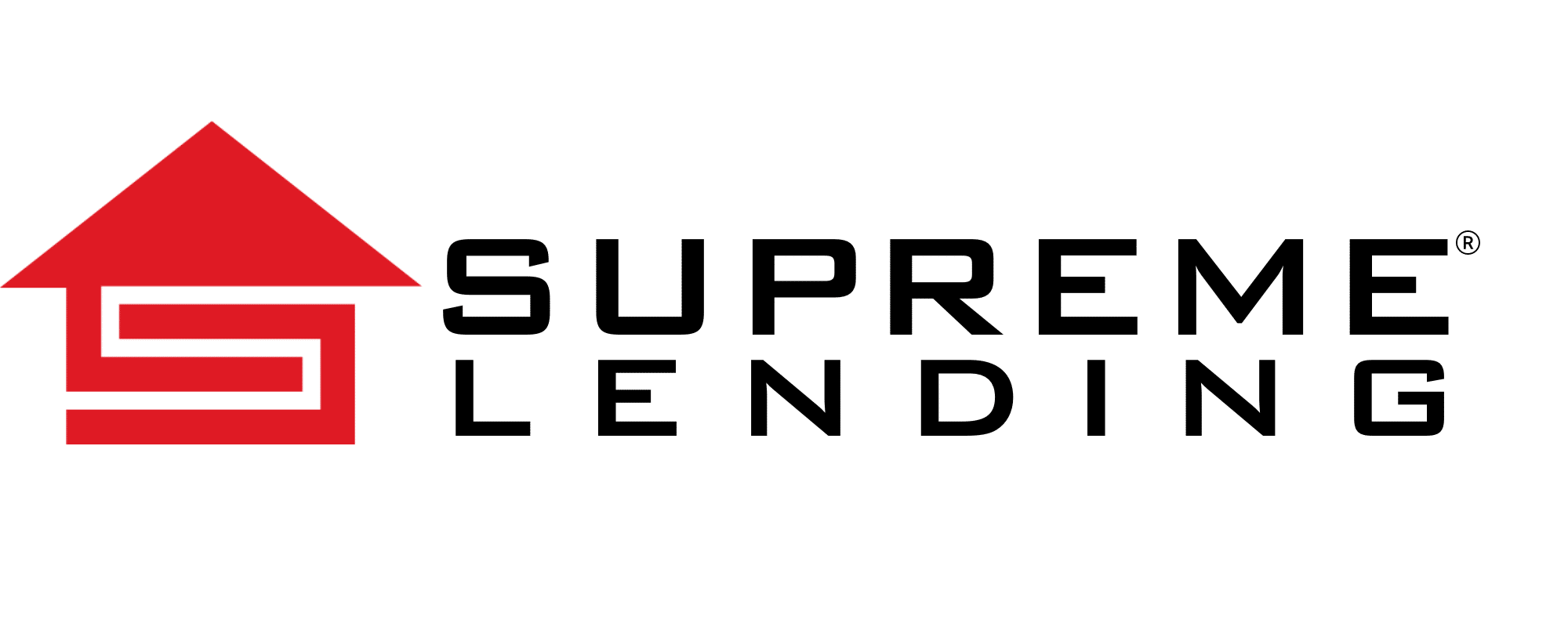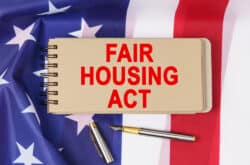
What is an Equal Housing Lender?
Buying property is one of life’s most significant and impactful decisions. It’s a dream many aspire to, yet for many, this journey is fraught with challenges. From navigating the intricacies of mortgage applications to facing the real and disheartening issue of mortgage discrimination, borrowers face numerous hurdles. In such a scenario, the concept of an “Equal Housing Lender” emerges as a beacon of hope, offering fairness and equity in this crucial process. Dive in as we unpack the significance of equal housing lending and why it’s a game-changer for borrowers everywhere.
What is an Equal Housing Lender?
At its core, an Equal Housing Lender ensures that all individuals have fair and equal access to housing loans, irrespective of race, color, religion, national origin, sex, familial status, or disability. These lenders play a pivotal role in combating mortgage discrimination, ensuring that everyone has a shot at the American Dream of homeownership.
At Supreme Lending Houston, we proudly wear the mantle of an Equal Housing Lender, leading the charge against biases in the Texas mortgage industry.
History and Origin of Equal Housing Lending
The dream of homeownership wasn’t always attainable for all. Early American housing practices were marred by discrimination. The Civil rights movement and persistent advocacy from fair housing champions gradually introduced changes, promoting inclusivity in the housing market, ensuring that every individual had an equal shot at homeownership.
Understanding Mortgage Discrimination in Depth
Mortgage discrimination, sometimes subtly manifested and at other times glaringly apparent, is a complex issue embedded in the fabric of the lending world. It occurs when lenders alter or base their loan decisions on criteria unrelated to an applicant’s financial reliability or credit history. Instead, decisions are swayed by an individual’s race, ethnicity, gender, age, or other personal attributes. Such practices inherently undermine the principles of fairness and equity.
Historical examination reveals a grim picture of mortgage discrimination, particularly in the United States. For decades, communities of color, women, and other marginalized groups often found themselves at a disadvantage, facing higher interest rates or being flatly denied loans that their white, male counterparts could easily secure. These prejudiced practices were not merely isolated incidents; they were systemic, leading to what is known as “redlining” where entire neighborhoods, predominantly those inhabited by minorities, were often marked as “high-risk” without a genuine financial basis.
The repercussions of these discriminatory practices ripple through time. Marginalized communities found themselves trapped in cycles of poverty, unable to access homeownership’s wealth-building potential. This not only perpetuated socioeconomic disparities but also led to generational wealth gaps that continue to persist. The uneven playing field denied many the opportunity to build assets, establish roots, and offer better opportunities for their children.
Recognizing this, there has been a push towards promoting inclusivity in the housing market. Institutions, regulatory bodies, and advocacy groups have come together to enforce laws, raise awareness, and foster practices ensuring everyone, irrespective of their background, has a fair shot at homeownership. While progress has been made, the journey to eliminate mortgage discrimination is ongoing. It’s imperative to stay vigilant, educated, and proactive in ensuring that the housing market truly represents the diverse and inclusive spirit of our society.
Protection Against Mortgage Discrimination
The dream of owning a home is universal, but achieving it without encountering biases is a challenge many have faced historically. Thankfully, a robust framework of federal and state laws has been established to ensure that borrowers are treated fairly and equitably when seeking mortgage loans.
- Federal Fair Lending Laws: These laws serve as the foundation of anti-discrimination practices in lending. Their primary objective is to ensure that borrowers are judged on their financial credentials, rather than personal attributes or prejudices. By setting a national standard, they create a baseline of acceptable conduct that lenders across the country must adhere to.
- Equal Credit Opportunity Act (ECOA): One of the cornerstones of fair lending, the ECOA, was specifically crafted to eliminate discriminatory practices in the realm of credit. Under this act, lenders are strictly prohibited from discriminating against applicants based on race, color, religion, national origin, sex, marital status, or age. Additionally, the ECOA provides protection to those who receive income from public assistance programs, ensuring that they too have an equitable shot at obtaining credit.
- Fair Housing Act: While the ECOA covers a broad range of credit-related transactions, the Fair Housing Act drills down specifically into the housing sector. This act is crucial in ensuring that all Americans have access to housing — whether rented or owned — without facing discrimination. This means a person cannot be denied housing or offered unfavorable loan terms based on any discriminatory criteria. It seeks to level the playing field, ensuring that housing decisions are based solely on a person’s financial capability and not prejudiced biases.
- State-Specific Laws – The Texas Fair Housing Act: Recognizing the need for additional layers of protection, many states have instituted their own laws to combat mortgage discrimination. Texas, for instance, has the Texas Fair Housing Act, which reinforces the principles set out in federal legislation while tailoring protections to meet the unique needs and challenges of its residents. This act works in tandem with federal laws, ensuring that Texans enjoy a double layer of protection against discriminatory practices in housing and lending.
While the path to completely eliminating mortgage discrimination is ongoing, the protective measures put in place at both the federal and state levels represent significant strides towards fairness and equality. Borrowers can take solace in the fact that a strong legal framework exists to uphold their rights, ensuring they get a fair deal when it comes to securing a home loan.
The High Stakes of Non-Compliance with Equal Housing Laws
For lenders, navigating the complex landscape of equal housing laws isn’t just a matter of legal obligation; it’s also crucial for maintaining their reputation and trustworthiness in the eyes of the public. When these laws are violated, the repercussions can be far-reaching and devastating for the offending institution.
- Legal Ramifications: The immediate consequence of violating equal housing laws is often legal action. Regulatory bodies, federal agencies, or affected individuals can initiate lawsuits against the offending lenders. When found guilty, these institutions may face stringent penalties, including cease and desist orders or mandatory corrective measures to rectify the discriminatory practices.
- Substantial Financial Penalties: The monetary consequences of non-compliance can be crippling for lenders. Depending on the severity and extent of the violation, fines can range from thousands to millions of dollars. For repeated or particularly egregious offenses, these penalties can escalate rapidly, threatening the financial stability of the institution.
- Repetitional Damage: Perhaps one of the most enduring consequences of violating equal housing laws is the damage to a lender’s reputation. In the age of social media and instantaneous communication, news of discriminatory practices can spread quickly, leading to public outrage and a loss of trust.
- Operational Impediments: In addition to the above, lenders found in violation might also face operational restrictions. They could be subjected to increased scrutiny and audits, which can hamper regular operations. In extreme cases, licenses can be suspended, effectively putting a halt to the lender’s ability to operate in specific jurisdictions or markets.
- Internal Morale and Retention Issues: An often-overlooked consequence is the impact on employees. Working for a lender that violates equal housing laws can demotivate staff and lead to retention issues. Top talents might seek opportunities elsewhere, not wanting to be associated with an organization deemed unethical.
In light of these potential repercussions, it’s evident that compliance with equal housing laws isn’t merely a legal mandate; it’s also a business imperative. The overarching message for lenders is clear: uphold the principles of fairness and equality, not just because it’s the right thing to do, but also because the costs of non-compliance are too significant to ignore.
How to Shop for the Best Mortgage Lenders in Houston, Texas
In the sprawling metropolis of Houston, buying a home can be both exhilarating and daunting. Your mortgage lender plays a pivotal role in this journey, potentially making it smoother or more challenging. Thus, finding the right lender isn’t just about securing the best rates – it’s about ensuring a hassle-free experience. Here’s a more in-depth guide on what to consider:
- Interest Rates and Loan Terms: At face value, these elements dictate the long-term affordability of your loan. While low-interest rates are desirable, it’s equally crucial to understand the loan’s duration, any associated fees, and potential penalties. This broader perspective will offer a clearer picture of the loan’s total cost over its life.
- Customer Service and Responsiveness: The mortgage process can be complex. It’s essential to have a lender that’s not just available, but also proactive in clarifying doubts, updating you on the loan’s status, and advising on potential pitfalls. A lender that values clear communication can save you from unforeseen complications down the road.
- Specialized Loan Programs: The diverse Houston populace has unique needs. Perhaps you’re a first-time buyer, a veteran, or looking for energy-efficient housing options. Some lenders offer specialized programs with favorable terms for such specific requirements. Finding these can mean more significant savings and better-suited loan structures.
The Importance of Due Diligence:
Before finalizing a lender, a bit of groundwork can make all the difference:
- Online Reviews and Testimonials: Platforms like Google, Yelp, and Better Business Bureau often house genuine customer reviews. These can offer insights into the lender’s professionalism, integrity, and customer-centricity.
- Licensing and Certifications: Ensuring that your lender is licensed provides a layer of protection and authenticity. In Texas, the Department of Savings and Mortgage Lending oversees the licensing of mortgage professionals. It’s advisable to verify your chosen lender’s status here.
- Recommendations: Personal experiences often provide the most candid insights. Talk to friends, family, or colleagues who’ve recently availed mortgages in Houston. Their firsthand accounts can shed light on aspects you might not find online.
- Focus on Equal Housing Lenders: Given the significance of non-discriminatory lending practices, prioritize lenders labeled as Equal Housing Lenders. This not only assures compliance with fair lending laws but often indicates a lender’s broader ethical framework.
Supreme Lending Houston, with its commitment to transparent and customer-centric practices, exemplifies many of these desired qualities. Visit our process page for a deeper understanding of how we stand out in the Houston mortgage landscape. Remember, the right lender can transform your home-buying experience, making it seamless and memorable.
Why Choose Us?
At Supreme Lending Houston, we’re not just any mortgage lender. Our staunch commitment to equal housing lending laws ensures that our lending practices are imbued with inclusivity and diversity. Our recognition and industry awards stand testament to our fair lending practices.
But don’t just take our word for it. Listen to the stories of countless satisfied clients who have walked the homeownership path with us. Our mission is to empower every individual to make informed choices, ensuring a transparent and fair home loan application process. We encourage borrowers to champion their rights and always opt for lenders with an unyielding commitment to fair practices.
Reach out to us for guidance on equal housing lending opportunities and take your first step towards a dream home that’s chosen with fairness and integrity at its core.
Discover our Programs and Processes



